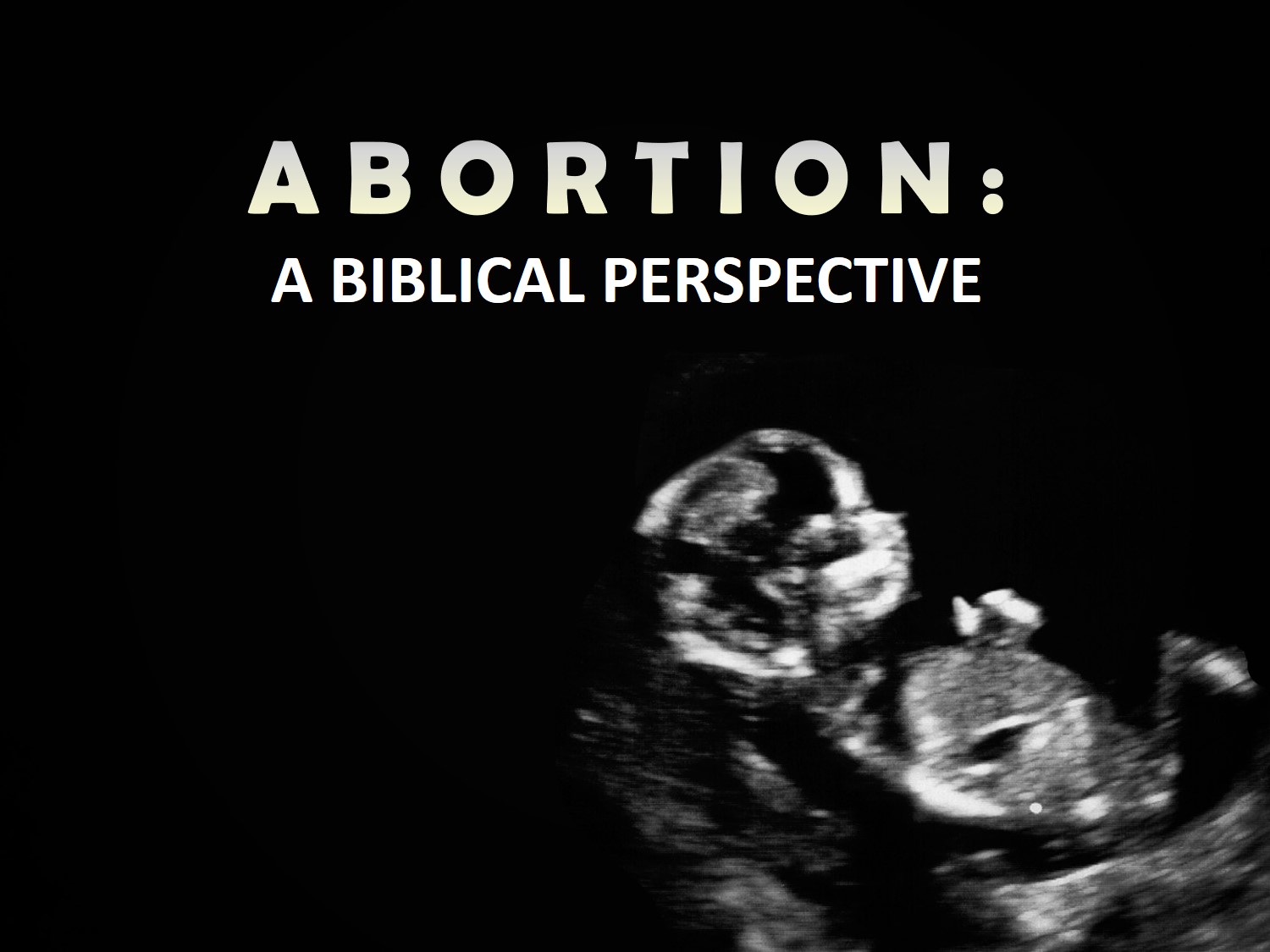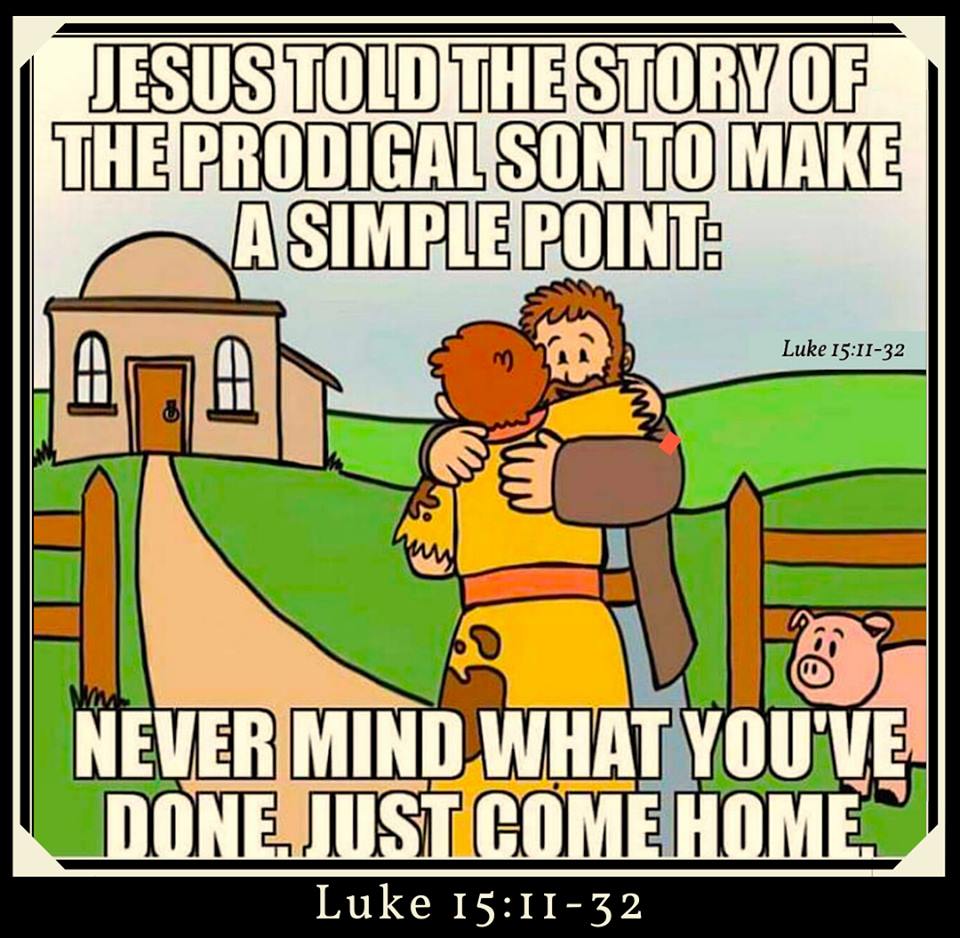Blog
Authenticity and Following the Rules
Friday, November 15, 2019We live in an age that values authenticity above all else. It’s perfectly OK to practice whatever sin, so long as you’re Really You while you’re practicing it. Conversely, through the years I’ve heard a number of indictments of brethren as being Not Really Authentic. Supposedly, members of churches of Christ are the spiritual heirs of the Pharisees. They’re so focused on following the rules that they forget about loving God.
That’s never sat quite right with me, so I decided to put it to the test on that impartial arbiter of wisdom, Facebook. Is this actually a Scripturally intelligible concept? Anywhere in the Bible, do we see people who follow God’s rules without caring about Him?
When I posed this question on Facebook, it generated a great deal of discussion, but nobody could come up with a clear Biblical example. The Pharisees weren’t heartfelt followers of God, but they weren’t obedient either. Instead, they were hypocritical lovers of money who won their reputation through self-promotion. The church in Ephesus had left their first love despite having all sorts of good works, but the cure to their disease was still repenting and doing the works that they had done at first. And so on. It seems to be universally true in Scripture that everybody who has a heart problem has an obedience problem too.
On the other hand, being on fire for God, passionately sure that you’re doing what is right, showing everybody how much you care, does not appear to be a guarantee of righteousness. Saul of Tarsus thought he was doing good by zealously persecuting Christians. Apollos thought he was doing the right thing by preaching the baptism of John. Both learned that they had some changes to make.
It seems to me, then, that the cultural idol of authenticity isn’t actually a very good way to evaluate somebody’s spirituality, whether our own or somebody else’s. Saul was a really authentic enemy of God. Somebody else can spend all day long gushing about God’s goodness, yet be at best misled and at worst a hypocrite. We ourselves can be 100 percent convinced that our feet are on the path to heaven, yet be 100 percent wrong.
Instead, if we want to learn the truth, we have to turn to the time-honored pastime of fruit inspection. We learn who people are by what they do. Somebody who loves God will keep His commandments, and nothing but love can provide the motivation for an obedient life. Faithfulness reveals the truth, both without and within.
You want to indict Christians or churches for hypocrisy? Fine. You want to criticize them for loving tradition more than the Bible? Go ahead. You want to condemn them for Malachi 1 apathy? Sure. However, recognize that all of these are fundamentally obedience problems, and they are measured by the word.
On the other hand, saying that somebody cares more about the rules than they do about God is logically incoherent. Failure to emote appropriately is not a spiritual problem. Some people simply aren’t emoters. I preached both of my parents’ funerals without a single catch in my voice or a single tear. If you want to conclude that I didn’t love my parents, you’re at liberty to do so, I guess.
Rather than pointing to a spiritual weakness, concern with obedience points to a spiritual strength. People who truly do want to get everything right in their service to God are people who care about God and are committed to Him. That might not read as authentic, but it’s as real as godliness gets.
Abortion: A Biblical Perspective
Wednesday, November 13, 2019
Another week, another requested sermon! This one comes from Charlie, who suggested in an elder-evangelist meeting a couple of months ago that I ought to preach a sermon on abortion. He observed, and I think correctly, that nearly every Christian has heard and believes that abortion is wrong, but also that few of us have worked through the Biblical logic for ourselves.
It’s important for us to do that. Certainly, abortion is a politically significant issue in our country, but I’m not presenting this lesson because I think it’s my place to tell Christians how to vote. Instead, my role is to tell Christians how to look at the world through God’s eyes. This isn’t primarily a voting-booth issue. It’s a real-life issue. Is abortion an option for women of God? How do we discuss this topic with others? How should the Scriptures inform the way we treat women who may be considering an abortion or even who have had one? These are critical questions. Let’s see how we should answer them as we consider abortion from a Biblical perspective.
The first Biblical principle that should inform our understanding is that EVERY LIFE MATTERS. Let’s begin here by considering the creation account of Genesis 1:26-27. This, brethren, is the foundation of everything the Bible says about how we should treat others. God is a being of infinite worth, every human being is created in the image and likeness of God, so every human being is a being of infinite worth too. Really, the whole New Testament is nothing more than the working out of this great truth. Being a Christian means being committed to the idea that everybody matters.
This includes not only people outside of the womb, but people inside it. The Scriptures make clear that people have identity and personhood before they are born. Look, for instance, at what God tells Jeremiah in Jeremiah 1:4-5. Even before he was born, Jeremiah was still Jeremiah. Even before any of us were born, we were still us, and all of us were and are precious image-bearers of God.
One of the great big moral problems with abortion is that it doesn’t treat people equally. Babies whom the mother wants to carry to term are precious image-bearers. In fact, if you kill a pregnant woman in Tennessee, they will charge you with double murder. However, if the mother doesn’t want to carry that baby to term, suddenly it doesn’t have value. It becomes the mother, rather than God, who assigns worth to that baby.
Worldwide, this has had horrific consequences. For instance, did you know that in Iceland these days, no more babies are being born with Down’s Syndrome? That’s because all of them are being detected during pregnancy screening and aborted. I think that’s horrible! Sure, people with Down’s Syndrome are often not as capable in some ways, but all of them whom I have known have had a kind, gracious spirit that would do credit to any Christian. Even more fundamentally, every one of them is created in the image of God too, and nobody should have the right to judge them as being unworthy.
Second, the Bible should call us to, for lack of a better way of expressing it, HUMILITY WITH LIFE. Consider what the Scriptures report about God in Psalm 90:1-4. God is so much greater than we are, and when it comes to matters of life and death, His decisions are so much greater than we are too.
This is something that I really got for the first time after my daughter Macy died. As I’m sure you can imagine, I spent years thinking long and deeply about it, trying to figure out what it all meant. On the one hand, losing a child was a horrendous experience, but on the other, that horrendous experience also equipped me to comfort others.
I think that for most people, having one of your children die is unimaginable. For me, I don’t even have to imagine. Others don’t know how it feels or what to say. I do. And so, for the past 10 years, as I’ve had opportunity, I’ve been saying it. Most notably, that helped me to reach out to a brother named Dennis and literally talk him out of killing himself. The tragic center of his tragic life was that he had lost a child too, and because we could meet each other there, I think I could help him find some peace.
As a human being, how do you deal with that? How do you balance your daughter’s life against being able to save somebody else’s life? When I confront that question, every time, I’m forced to turn away. I’m not big enough to answer it. However, I believe that God is big enough to answer it. In His greatness, He can judge in matters of life and death, and His judgments are always right.
This understanding is really at the heart of my objections to abortion. Abortion is wrong because it takes the power of life and death and arrogates that to ourselves. Even in cases where God expressly delegates that power to humankind, as with capital punishment, I think most of us would agree that we don’t do a great job making those decisions. We aren’t built for it. How much more, then, is making that decision about an unborn child beyond any of us?
However, we must balance that moral realization with COMPASSION FOR OTHERS. Here, let’s begin with what the Hebrews writer says about priests under the Law of Moses in Hebrews 5:1-2. I love this passage because it shows us that when we address the frailties of others, the first step must be to consider our own frailty.
It is awfully easy to demonize women who have abortions, but that is the very thing that a Christian must never do. There’s this portrait floating around out there of trashy women who have abortions because pregnancy is an inconvenience to their love lives, but I think that portrait bears almost no resemblance to reality.
Instead, I think that 99 percent of the time, women who have abortions, have them because they are afraid, in fact, because they’re terrified. They’re afraid of not being able to keep the job they depend on to live. They’re afraid that their boyfriend is going to leave them once he finds out they’re pregnant. They’re afraid that their church is going to find out and spend the next 50 years gossiping about them.
I sympathize with the brethren who are politically active because they want to see Roe v. Wade overturned. I think that their hearts are right, but I am less certain that their actions will have the effect that they want. Even if abortion is totally outlawed in our country (and I’m skeptical that will ever happen, honestly), all that will accomplish is to drive it underground again. Women who are afraid enough to abort their babies are also afraid enough to break the law to do it.
Instead, if we want to attack abortion, we must attack the fear that underlies it. Be somebody who is willing to care for a child not your own, so that women know they have options. Be somebody who will support and encourage single moms in a life that is very difficult instead of sneering at them and blaming them for their predicament.
For that matter, be somebody who is gentle with sinners rather than gossipy and harsh. Yes, they need to repent, but that’s for their sake, not ours. We need to make sure that everybody knows this church is a home for forgiven sinners, because that’s all any of us are.
Summary: Psalm 119:33-112
Tuesday, November 12, 2019
As with everything else in the psalm, this section of Psalm 119 concerns the relationship between the psalmist and the word of God. The acrostic structure of the psalm continues in this portion, this time employing the Hebrew letters from He to Nun.
Psalm 119:33-40 (He) acknowledges the connection between God’s word and life. Those who seek the word and follow it will receive life, but those who seek after worthless things and selfish gain will not know God’s blessing.
Psalm 119:41-48 (Waw) focuses particular attention on the usefulness of the word in times of confrontation. The psalmist uses the law of God to answer those who taunt him, to find hope, and to give him confidence when he stands before kings. These benefits are only available to those who love God’s commandments and trust in them.
Psalm 119:49-56 (Zayin) considers the consolation that is available in the word. Even when he is afflicted, when others mock him, when the wicked abandon God, and when things look (both literally and metaphorically) dark, the psalmist still draws comfort from God’s law.
Psalm 119:57-64 (Heth) makes a connection between the steadfastness of God and the psalmist’s steadfastness. No matter what, he continues to seek the word and praise God, and he is confident that this is the correct strategy because of the obviousness of God’s steadfast love.
Psalm 119:65-72 (Teth) explores the difference between those who honor God’s law and those who do not. The psalmist strayed from God before he was afflicted, but his suffering taught him the importance of obedience. On the other hand, the insolent continue to oppose him and God because the word does not move their hearts.
Psalm 119:73-80 (Yodh) examines the value of the word in times of trouble. Through God and His law, the psalmist hopes that his affliction will work out for good, that he will be comforted, that the insolent will be ashamed, and that the faithful will seek him out.
Psalm 119:81-88 (Kaph) is a plea for God’s help according to the promises of the word. The psalmist has lived according to God’s law, and he cherishes the hope that God offers him. Consequently, he calls on God to rescue him so that his relationship with His commandments can continue.
Psalm 119:89-96 (Lamedh) focuses on the trustworthiness of the word. The rest of God’s creation proclaims His faithfulness, so it is logical to attribute that same faithfulness to the word. Those who trust in it will be delivered.
Psalm 119:97-104 (Mem) is one of the most famous sections of the psalm. It exclaims over the psalmist’s love for God’s law and the benefits that come from studying it. The commandments of God make the psalmist wiser than mentors and enemies alike, and they teach him to act and think righteously.
Psalm 119:105-112 (Nun) contains the most famous verse in the psalm (119:105) and reflects further on how the word is useful through different seasons of life. The psalmist vows his faithfulness to the word until life’s end.
"Holy Ground" and Singing What's Led
Friday, November 08, 2019![]()
Recently, a friend asked me what I thought of the praise song “Holy Ground” and whether we should sing it in worship. There are a couple of songs with that title, but I think the version he’s talking about is this one. It doesn’t really matter; the other “Holy Ground” says similar things. Apparently, the argument goes that the idea of a church building being holy ground is unscriptural, so we shouldn’t sing it.
I have a couple of problems with that. First, I’m not entirely sure that it’s correct. As I understand things, in Scriptural terms, something is holy when it is dedicated to God’s purposes.
Isn’t that true of our church buildings? If that’s not true, if we don’t believe that our church buildings should be dedicated entirely to God’s purposes, why do we object so strenuously to church buildings containing fellowship halls, gyms, and so forth? Conversely, if they are dedicated entirely to God’s purposes (like the meat of sacrifices under the Law, for instance), isn’t there at least a sense in which they are holy?
However, even stipulating that the above is not true, there’s another problem with objecting to “Holy Ground”. Sure, it’s possible to read the lyrics as being about the literal floor of the church building. However, it’s equally possible to read them metaphorically. “We are standing on holy ground,” is a clear reference to Exodus 3:5.
When we sing “Holy Ground”, then, we are putting ourselves in the position of Moses, in the same way that we put ourselves in the position of the apostles in the boat when we sing “Master, the Tempest Is Raging” and of Mary Magdalene when we sing “In the Garden”. Nobody objects to either because we aren’t really on the Sea of Galilee or really standing in front of Joseph’s tomb. Why is it problematic that we aren’t really in front of the burning bush either?
All of this raises a larger issue, though: the question of how we deal with hymns with questionable content when we are invited to sing them in the assembly. The first approach is to object to any song that could be misunderstood. This leads to discouraging others by our refusal to sing, strife in the church, and ultimately the compilation of a “ban list” that excludes many of our richest hymns.
Do we axe “The Solid Rock” because the last verse can be read as Calvinist (and indeed was written by a Calvinist)? How about “Amazing Grace”, which easily can be read as proclaiming salvation by faith only (which John Newton believed in)? Sad to say, a great many of the hymns that can survive such hostile scrutiny are those that don’t have much content in the first place. They might be “Scriptural”, but when it comes to the Colossians 3:16 goals of teaching and admonishing, they’re nearly useless.
Instead of asking if a hymn can be understood wrongly, we’re far better off asking if it can be understood rightly. Is there a way that I can square singing this hymn with my conscience? This is the option that I prefer. I certainly have my share of opinions about good and bad hymns, but I will almost never refuse to sing a hymn, nor even talk to a song leader about that hymn after services.
First of all, who am I to tell somebody they’re worshiping wrong when they very well could be worshiping right? Second, when my brother is pouring out his heart in worship, do I really want him to glance over and see me sitting there mutely with an expression on my face like I’d just bitten into a green persimmon? Third, doesn’t refusing to sing boil down to looking for reasons not to praise God, rather than reasons to praise Him? If that’s where my heart is, I’m not OK with that.
In real life, if offered the opportunity to lead singing, I’m probably not going to lead “Holy Ground”. I think there are better options out there. However, if I’m in the pews, and I’m asked to sing “Holy Ground”, I will do so.
I will think about Moses. I will reflect on the holiness that God’s presence demands. Generally, I will do my best to sing with spirit and understanding in the hope that my brethren will be edified and my God will be glorified.
Hymn critique has its place, but the assembly isn’t it.
The Point of the Prodigal Son
Thursday, November 07, 2019
I know that one should not have high expectations of religious memes, but the one above grinds my gears. Every time I saw it, I rolled my eyes a little bit harder, until I knew that either I’d have to write about it, or my eyes would get stuck that way permanently, just like my Communications teacher said they would.
Certainly, the meme is in line with the pop-culture understanding of the parable, and even in line with the hymns we sing. I think “Love for All” is a moving hymn. Indeed, it makes a better hymn than a hymn about the actual point of the parable would!
However, we need to be better Bible students than that. First, I don’t think Jesus ever said anything to make “one simple point”. His teaching has so many layers to it that I think it’s the most difficult thing in the Bible to understand fully. You can get the surface meaning pretty quickly, but the deeper aspects take years or decades (or never, this side of Jordan) to understand.
Second, if the parable of the prodigal son has a simple point, “Just come home,” isn’t it. I think you could make the argument that “Just come home,” is the point of Jesus’ entire ministry (as per Luke 19:9), but He’s doing something different here. Luke 15:1-3 tells the story:
Now the tax collectors and sinners were all drawing near to hear Him. And the Pharisees and the scribes grumbled, saying, "This man receives sinners and eats with them." So He told them this parable:
Then, immediately following, you’ve got the parable of the lost sheep, the parable of the lost coin, and the parable of the prodigal son.
Notice that the context begins with the observation that the tax collectors and sinners were drawing near to listen to Jesus. There was no need to tell those prodigals to come home. They already were coming!
The problem was that the religious elites who saw all this, rather than rejoicing, were grumbling because Jesus was associating with riff-raff, which they themselves surely would not have done. They are so obviously in need of a dramatic attitude adjustment that it is to the “righteous”, rather than to the sinners and tax collectors, that Jesus relates His trio of parables.
First, He uses the parables of the sheep and the coin to show that even if the Pharisees aren’t rejoicing over all the repentant sinners, all of heaven is. God has invited the angels to share in His celebration! Contextually, then, the point of the parable of the prodigal son is that if the Pharisees don’t join in the rejoicing (as the older brother didn’t), they will remove themselves from the household of the Father, refusing to come in, even as He begs them to do so.
The parable of the prodigal son, then, isn’t a lighthearted offer of reconciliation, complete with cute cartoon pigs. It’s a sobering warning from Jesus to the Pharisees (and indeed to everyone who is “religious”) to check their hearts. We, not the sinners around us, are the ones who are in danger of ending up on the wrong end of the parable.
The only people who are going to enter the kingdom of heaven are the ones who share the goals of the King of heaven. Even though sinners have grieved Him by their rebellion, He longs to be reconciled with them. We are His chosen instruments for doing exactly that.
How do we feel about our work? Are we as zealous for the lost as God is? Or, instead, are we indifferent to them, or even actively hostile, like the Pharisees were? Are we the kind of Christians who, deep down, don’t want messy people in our neat little church?
Jesus wants us to understand that that spirit will leave us on the outside looking in too.



